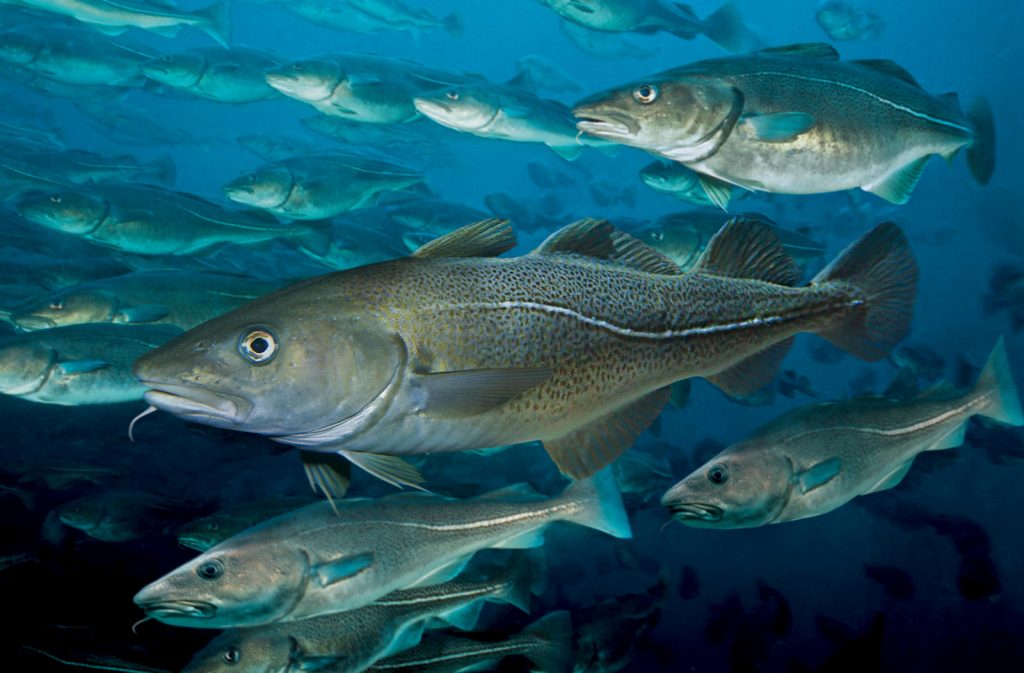
Atlantic cod, Paulo Oliveira / Alamy Stock Photo
Scientific workshop organised by ICES (International Council for the Exploration of the Sea) on Assessing the Impact of Fishing on Oceanic Carbon.
Tuesday 25 – Thursday 28 April, ICES heartquarters, Copenhagen, Denmark
Our Fish has recently returned from Denmark, where we took part in a workshop that brought together experts from around the world to explore the relationship between fish, fishing and the ocean’s carbon cycle.
This is a significant milestone for the success of Our Fish as we have long advocated for incorporating the climate impacts of fishing into decision-making processes.
Fish play a crucial role in the ocean’s carbon cycle, but fishing can disrupt this balance in multiple ways. Not only does it remove fish from the ecosystem, but it can also lead to changes in the food web and disturb the seafloor, both of which affect the amount of carbon stored in the ocean. At the workshop, experts from a range of disciplines, including biologists, oceanographers, fisheries scientists, and social scientists, discussed the need for a holistic, multidisciplinary approach to address the complex issues surrounding fishing and carbon cycling in the ocean. Following three days of in-depth discussions, the experts reached a consensus that fishing impacts the ocean’s ability to sequester carbon in multiple ways, and therefore, we need to start managing those impacts.
“Governance and management approaches should be developed now, in parallel with the fishing/carbon science providing metrics, thresholds, and advice. If we don’t do this, the science becomes an academic exercise.”
What will happen now:
The workshop’s findings are a significant breakthrough in the way we think about managing fisheries and have some important implications for EU fisheries management. Future management strategies should consider direct and indirect emissions from fishing, including fuel usage and seabed carbon release, as well as impacts on the ocean’s carbon budget, food web impacts and biodiversity. It will be a significant step forward in ensuring that fishing practices are more sustainable and environmentally friendly. Ultimately, this will help protect the oceans and our planet for future generations.
The roadmap developed at the workshop will soon be available and a policy brief will follow in a couple of months.
